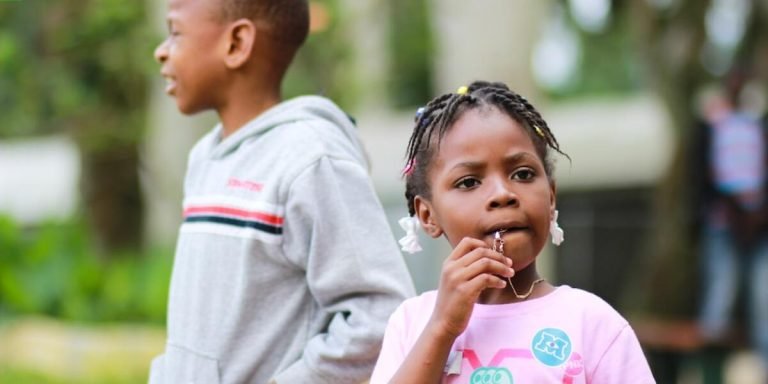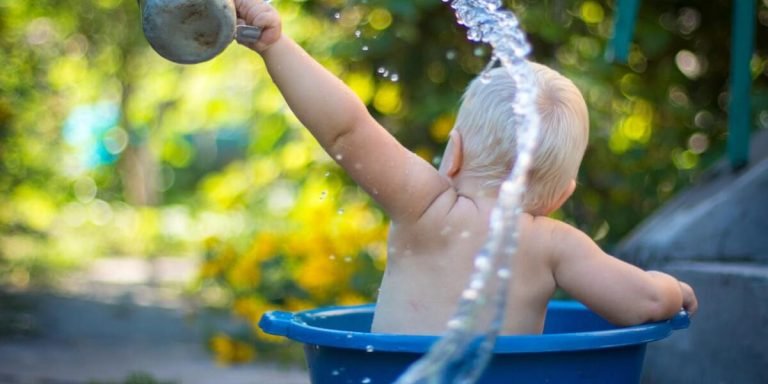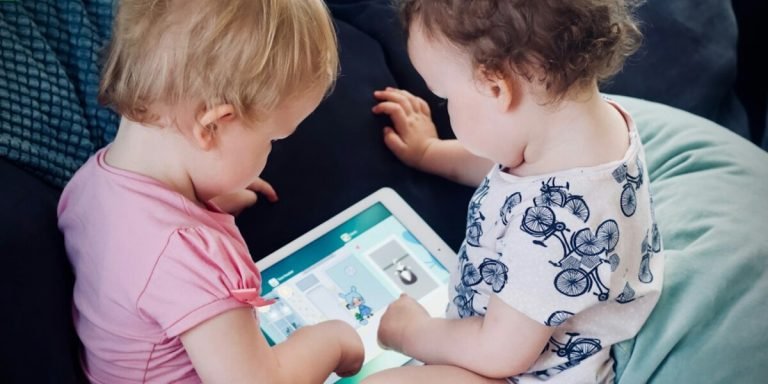Preschool Centers: A Groundwork for Successful Early Learning Journey
Preschool centers play an instrumental role in shaping the early learning journey of a child. As the first structured educational environment that they encounter, these establishments serve as catalysts for their cognitive and social development. With carefully designed programs integrating playful activities with foundational academic skills, preschool centers equip young minds to navigate future schooling experiences confidently.
The significance of these haven lies beyond ABC’s or 123’s; it is about nurturing curiosity, fostering creativity and instilling a love for knowledge in children at an impressionable age. An understanding of how preschool centers contribute to early childhood education can help parents make informed decisions regarding this crucial phase in their child’s life.
Did you know?
Did you know that children attending high-quality preschool programs are 24% more likely to attend a four-year college? Early education indeed sets the foundation for future academic success.
Understanding the Role of Preschool Centers in Early Childhood Development
As pivotal arenas of growth, preschool centers play an instrumental role in early childhood development. These establishments are more than just places where children spend a few hours each day; they serve as the platforms for young minds to explore their cognitive and social abilities. In 2023, with increasing awareness about child psychology and teaching methodologies attributed to neuroscientific research, these nurseries hold even greater significance.
Preschool center activities stimulate the curiosity inherent in youngsters which is crucial for fostering intellectual agility that lasts a lifetime. Molding clay or building blocks may seem like innocent pastimes at first glance but delve deeper into these engagements and you’ll uncover lessons on creativity, problem-solving and teamwork subtly entwined within them.
The value proposition bolstered by preschools also extends beyond immediate academic readiness towards broader life skills such as resilience and adaptability – attributes indispensable in today’s rapidly altering world scenario. Children learn how to interact amiably with their peers thus learning empathy, confidence-building through self-expression via art & music sessions enrich emotional intelligence – all under the safe umbrella of certified professionals trained specifically for this critical phase of human development.
In summary, Preschool Centers champion well-rounded improvement facets necessitating its worth being comprehended rather than undermined so your precious little ones can unlock remarkable potentialities futuristically while having fun organically!
The Importance of Structure and Routine in Preschool Settings
Preschool centers play a critical role in any child’s early development stages. They are not just places where children go to spend some hours of the day, but they form the foundation for their future learning journey.
One significant aspect preschool centers emphasize is structure and routine. Creating an environment with predictable patterns has incredible benefits on young minds – it fosters emotional safety, develops responsibility, and enhances learning capabilities.
A structured environment doesn’t necessarily mean rigid timetables that don’t allow flexibility. Instead, it means creating a balanced regimen where activities align with each other harmoniously without causing stress or exhaustion for these little learners.
Predictable routines help kids understand time management at an early age; gradually preparing them for more organized school schedules in subsequent years. Activities such as circle time when everyone gathers together to share stories develop social skills while snack times instill good eating habits.
In addition to instilling discipline and decorum among these young learners, consistent routines also foster autonomy by teaching self-direction and control because they know what comes next after every activity-executing actions independently becomes part of their daily lives-this prepares them adequately well enough before joining formal schooling systems later on .
To sum up: Establishing consistency through regular timings boosts confidence levels drastically amongst youngsters thus making transitions smoother across different life stages-particularly impactful during periods marked by immense changes (like switching between home & daycare settings).
Evaluating the Impact of Social Interaction at Preschool Centers
Engaging in social interaction at preschool centers plays a pivotal role in the early development stage of children. These interactions shape their personality, perspective, and nurture essential life skills that go beyond academic learning.
Preschool centers are often a child’s first exposure to structured group activities. It is here they learn how to communicate with peers and adults effectively—boosting both verbal and non-verbal communication abilities.
When interacting socially, children in preschools get exposed to diverse cultures and backgrounds. This diversity leads them into developing an understanding of acceptance at an early age which can be beneficial for their growth as inclusive individuals.
Social participation also encourages creative play among kids; it enables them to express themselves freely while exploring different roles through games or drama sessions thus promoting self-expression ability comprehensively.
Moreover, these initial steps towards making friends help establish emotional connections during childhood education years—forming the key basis for empathy learned later on in adolescence stages. In essence, those relationships built boost emotional intelligence considerably aiding overall healthy mental wellbeing too!
The Curriculum Essentials: What to Expect From Top Preschool Centers
When choosing preschool centers, it’s essential to remember that the curriculum forms the crux of your child’s early learning journey. In today’s rapidly evolving educational landscape in 2023, top-rated preschools are no longer confined to simple ABCs and 123s. They take a comprehensive approach towards education wherein cognitive development is intertwined with emotional growth.
To begin with, expect a robust language program from leading preschool centers as stimulating communication skills serves as their key focus area. This includes exposure not just to vocabulary but also verbal comprehension and articulation. Alongside this runs an energetic exploration into pre-math skills where kids learn through interactive games about shapes, patterns, sorting objects which eventually lead them onto concepts like counting or making basic calculations.
Not stopping at academic fundamentals alone; creativity enhancement takes center stage too in these institutions’ curriculums by integrating activities such as artistry crafts or dramatized storytelling sessions which boost imaginative thinking amongst youngsters along while honing fine motor skills simultaneously.
The intriguing part lies within how seamlessly they interweave life-centric lessons amidst regular routine tasks instilling values right from empathy towards peers up till understanding environmental respect hence crafting holistic individuals ready for future scholastic pursuits yet grounded in societal morals.
However indispensable books might be for impartation of knowledge but recognizing that physical wellness plays its own pivotal part remains vital elsewhere so allotting time slots specifically dedicated towards inducing active habits among students stays on priority charts across all prominent childhood learning spaces globally currently.
Key Learning Domains Covered by Quality Early Education Programs
Firstly, cognitive development is a primary focus area of these programs as it encourages the child’s problem-solving and logical thinking skills. Activities centered around math concepts such as counting objects or identifying shapes aid this process.
Secondly, they focus on language development that involves improving vocabulary, comprehension abilities, reading readiness skills and more! Engaging storytimes or rhyming games play an essential role here.
Thirdly comes physical development which aims at strengthening fine motor skills through activities like drawing or working with clay while gross motor skill enhancement includes jumping rope or playing catch!
How Play-Based Curriculums Foster Growth in Young Children
Play-based curriculums are an integral part of some top preschool centers in 2023. These unique programs realize the significance of play in a child’s growth and development, employing it to establish strong educational foundations.
One noticeable factor about play-based curriculum is its capacity to foster social skills among young learners. Children immersed in these environments frequently interact with peers, experimenting with communication methods and gathering vital interpersonal abilities which they can carry along into their adult years.
Then comes creativity enhancement; Play-oriented activities encourage children to think outside the box. They are given room for imaginative thinking that leads them towards problem-solving capacities – all while having fun! This innovative approach allows kids to see learning as an exciting endeavor rather than a chore – making education more engaging from early stages itself!
In addition, literacy and numeracy lessons embedded within games make abstract concepts tangible for youngsters. Educational toys like alphabet blocks or counting beads simplify complicated ideas by presenting them visually or tactilely– thereby accelerating understanding effortlessly.
It’s not just intellectuality though; A good playground is also excellent at teaching essential motor skills – physical movement such as crawling under tunnels or swinging on monkey bars boosts body coordination whilst strengthening muscles.
Selecting the Right Preschool Center: Factors for Parents to Consider
Every parent wants the best for their child, especially when it comes to their education. In recent years, preschool centers have become an essential part of early childhood learning and development. As a parent or guardian in 2023, finding the right place that offers nurturing care along with high-quality academic programs can feel like searching for a needle in a haystack.
Choosing the correct preschool center is more than just location convenience and affordable fees. Factors such as curriculum planning, faculty credentials, safety measures and even emotional well-being should rightfully be on your checklist too. It’s this balance between cognitive growth stimulation through play-based learning activities and caring attention by professional educators that makes all the difference.
Making an informed decision involves not only researching online but also visiting different facilities personally to get a sense of ambiance being offered there. Observing how staff interact with children will give you insights into if they value each child’s individuality or not – one significant aspect of quality teaching-learning process at natal stages.
Remember: Early childhood education forms foundation blocks necessary for lifelong learning; hence carefully selecting ideal preschool centre is paramount importance amidst evolving educational trends across globe today in 2023.
Assessing Staff Qualifications and Teacher-to-Child Ratios
In your quest to find the ideal preschool center for your child, one essential aspect you shouldn’t overlook is assessing staff qualifications and teacher-to-child ratios. Given that early childhood education plays a critical role in shaping a young mind’s growth and development, it becomes imperative for parents to consider this factor during their selection process.
Firstly, looking at the teachers’ qualification can provide insight into their capacity to stimulate cognitive development in children effectively. It isn’t just about having degrees or certifications; experienced educators who continually update themselves with current teaching methods are often better equipped when it comes down to fostering an enriching learning environment.
Secondly, understanding the teacher-to-child ratio offered by different preschool centers allows you an opportunity to gauge how much individual attention each student receives within classroom settings. A low teacher-student ratio ensures closer supervision and tailored instruction geared towards meeting unique developmental needs of students.
Research shows classrooms functioning on lower student-teacher ratios tend to have happier kids exhibiting more interest in school activities compared with larger class sizes where students eventually feel alienated due lack of personal interaction from overworked teachers unable meet every student’s individual needs fully.
Here are some questions you might want ask while considering these factors:
1. What qualifications do teachers possess? Remember look not only formal education but also experience working small children continuous professional training.
3 Is curriculum designed keeping mind holistic approach early childhood education – does particular school value academics equally alongside emotional social aspects learning?
The Significance of Facility Safety and Learning Resources
When we talk about facility safety, it goes beyond having safe equipment or being accident-proof. In 2023, where digital technology intertwines with our daily lives, this also includes ensuring online safety measures are put into place during virtual classes.
Safety isn’t just physical; it’s emotional too. Preschool centers must foster an environment free from bias and discrimination to ensure each child feels secure and respected for who they are.
Moreover, the availability of learning resources significantly impacts your child’s educational journey at these preschool centers. Books alone can’t provide children with all forms of knowledge necessary in today’s rapidly evolving world. Thus interactive resources such as puzzles, building blocks, art supplies offer them hands-on experience while cultivating creativity and problem-solving skills.
Digital tools like age-appropriate apps complement traditional learning materials creating a blend of old school wisdom with modern-day innovation – developing digitally literate individuals ready for the future ahead.
Remember that both factors –a robust security framework coupled with rich sources for experiential learning- contribute to molding confident learners armed with academic understanding tweaked according to individual aptitudes.
Conclusion
In the grand scheme of a child’s early education journey, preschool centers are paramount stepping stones. They encompass not just academics but vital social, emotional and physical development aspects that shape children into curious learners ready to conquer kindergarten.
So whether you’re in the throes of selecting an ideal center or considering enhancing your current one with fresh teaching techniques, remember – every step is valuable! Take advantage of our plethora of resources dedicated to guiding parents and educators on this remarkable adventure. Let’s foster together an environment where our young ones thrive brilliantly.
Keep exploring for more insights right here because at ‘OurWebsite’ we believe educating children is a task best done collaborative!







